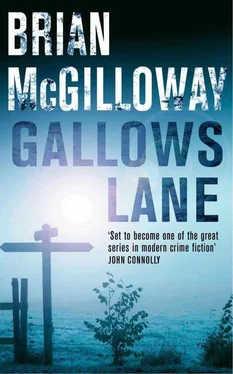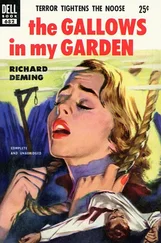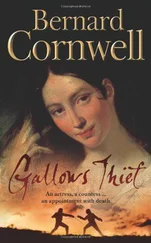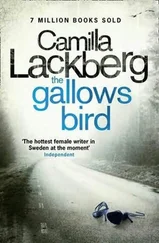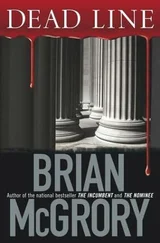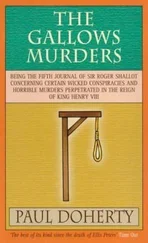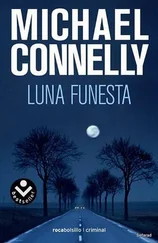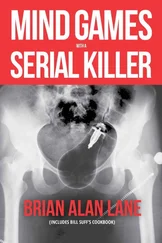Brian McGilloway - Gallows Lane
Здесь есть возможность читать онлайн «Brian McGilloway - Gallows Lane» весь текст электронной книги совершенно бесплатно (целиком полную версию без сокращений). В некоторых случаях можно слушать аудио, скачать через торрент в формате fb2 и присутствует краткое содержание. Жанр: Криминальный детектив, на английском языке. Описание произведения, (предисловие) а так же отзывы посетителей доступны на портале библиотеки ЛибКат.
- Название:Gallows Lane
- Автор:
- Жанр:
- Год:неизвестен
- ISBN:нет данных
- Рейтинг книги:5 / 5. Голосов: 1
-
Избранное:Добавить в избранное
- Отзывы:
-
Ваша оценка:
- 100
- 1
- 2
- 3
- 4
- 5
Gallows Lane: краткое содержание, описание и аннотация
Предлагаем к чтению аннотацию, описание, краткое содержание или предисловие (зависит от того, что написал сам автор книги «Gallows Lane»). Если вы не нашли необходимую информацию о книге — напишите в комментариях, мы постараемся отыскать её.
Gallows Lane — читать онлайн бесплатно полную книгу (весь текст) целиком
Ниже представлен текст книги, разбитый по страницам. Система сохранения места последней прочитанной страницы, позволяет с удобством читать онлайн бесплатно книгу «Gallows Lane», без необходимости каждый раз заново искать на чём Вы остановились. Поставьте закладку, и сможете в любой момент перейти на страницу, на которой закончили чтение.
Интервал:
Закладка:
Brian McGilloway
Gallows Lane
And thus we sit together now,
And all night long we have not stirred,
And yet God has not said a word!
From ‘Porphyria’s Lover’, Robert BrowningChapter One
Sunday, 28 May
James Kerr returned to Lifford on a blustery morning in May, shuffling under the heavy clouds that scudded across the sky towards the North. The air had thickened all week, building to an overnight thunderstorm, the tail-end of which now spread itself across the Donegal border into Tyrone.
As Kerr passed the border service station from Strabane, he struggled to control the multicoloured golfing umbrella he carried, which the wind had snapped inside out, cracking the thin metal spokes like a bird’s broken wings.
A carload of teenagers from the North sped past him, steering deliberately through the widening puddle at the roadside at just the right moment for the spray to hit Kerr, instantly darkening his trousers, the water in the car’s wake misting in an iridescent arc. Perhaps the thudding of the wind popping the material of the umbrella drowned out the sound of laughter from the speeding car, but it could not disguise the hand gestures the occupants made from the rear window. They must have seen me then, sitting at the border in a Garda car, for they slowed down and fumbled to put on their seat belts. I radioed for someone to keep an eye out for them, then lit a cigarette and waited for Kerr to reach my car.
I had never met Kerr before, though I recognized him from the mug shot I had been given by my superintendent, Olly ‘Elvis’ Costello. The photograph had been taken a decade earlier, when Kerr was really just a boy. His hair had been thick and curly, the fringe hanging over his eyes, resting on the frame of the penny glasses he had worn. He had attempted a sneer for the camera, but it was clear from his eyes that he was terrified. His face was puffy with lack of sleep, his pupils were wide, the whites yellowed — with exhaustion, presumably. His skin was clear, without a hint of the stubble or beard growth one associates with arrest photographs.
I turned my attention from the picture, which I had tucked inside the sun visor, to the man himself drawing alongside my car. Since the picture had been taken he had lost weight. His hair had been shaved tightly, revealing an oddly shaped skull. He still wore glasses though they were dappled with rain and I could see him squinting past them towards the car. I rolled down the window as he drew abreast.
‘James Kerr?’ He nodded, but did not speak. ‘Welcome home. Can I give you a ride someplace?’
‘No, thank you,’ he said, as his umbrella thudded inside out once again.
‘Get in the car, James,’ I said, starting the engine.
He paused, as if considering the offer, glancing up and down the road. Finally, he opened the back door of the car and flung his blue canvas bag on to the seat. He straightened out his umbrella and laid it on the floor as if not to wet the upholstery, then he closed the door and got into the front passenger seat.
‘I’d rather not sit in the back of a police car again for a while,’ he explained, removing his glasses which had begun to steam up.
‘Whatever you like, James. My name’s DI Devlin. I don’t believe we’ve met.’ I extended my hand to shake his but he had begun to wipe the rain off his face. He ran a hand over his scalp as if to slick back his hair, then he flicked the gathered moisture onto the floor of the car. Smiling apologetically, he wiped his hand on his trouser leg and shook mine, weakly.
As he was sitting up front, I could smell the dirt of his unwashed clothes and the staleness of his breath. His jeans had been pale blue at one stage but were badly stained now and darkened where the rain and puddle water had soaked them. He wore a yellow skinny-rib T-shirt under a grey woollen cardigan. I could tell from the smell that he hadn’t been drinking at least, which was unusual for a man who had just been released from prison. But then, James Kerr was an unusual character.
Kerr had been involved with the local Gardai most of his life. When he hit adolescence he was fairly regularly lifted for some petty disturbance: stealing sweets, then cigarettes; breaking windows; letting down tyres. Anything to get himself noticed, I suppose. He had a reputation for mouthing off when questioned and, on one occasion, he spat in the face of an officer called to a local shop where he had been caught trying to steal a woman’s weekly magazine, of all things.
The situation reached a low for James when he took a shine to a neighbour’s seventeen-year-old daughter, Mary Gallagher. Their blossoming relationship seemed to keep James on the straight and narrow right up until the day, just a week shy of his sixteenth birthday, when he discovered that Mary was his half-sister, the product of one of his father’s clandestine affairs. Things became further complicated when it transpired that Mary was pregnant with James’s child and, in the manner of parochial Irish towns countrywide, the girl was sent to live with an aunt in England and James became the wandering protagonist in his own personal Greek tragedy.
Kerr’s mother, having broken free from her husband, then started an affair with a teacher from Strabane, whose son was at school with James. James graduated from stealing sweets to sniffing glue and joyriding cars along the back roads between the North and South. Eventually he wrapped one of his stolen cars around an oak tree on the back road to Clady and broke his wrist. He was banned from driving for ten years and, had he possessed a licence, it would have been revoked. He should have been fined but, as his barrister argued impecuniosity, James was given community service instead and had to tend the flower beds around Lifford for three months.
Finally, Kerr had been more seriously injured fleeing the scene of an armed robbery just over the border and had been arrested by the RUC, the law in the North before the Police Service of Northern Ireland was established. He had served almost eight years of a twelve-year sentence before allegedly finding God and, the Friday previous to my meeting him, had been freed early for good behaviour.
All of this Superintendent Costello had explained to me that Sunday morning in his office. Costello had received word from the PSNI that Kerr had been released from Maghaberry Prison. Since then, Costello had posted someone on the border waiting for Kerr to appear — which he finally did.
‘I don’t want Kerr coming back here, making trouble, Benedict. If he arrives, convince him to stay back on the Northern side of the border, eh?’
‘What’s he done?’ I asked.
‘Found Jesus apparently; that’s why they let the wee shite out.’
‘Maybe he has,’ I suggested.
‘What?’
‘Found Jesus.’
‘I doubt it,’ Costello said. ‘If Jesus knew Kerr was looking for Him, He would’ve hid. Kerr’s bad news, Benedict.’
And then he’d explained the background of the case to me. Protesting his innocence throughout his trial and subsequent incarceration, Kerr told his parole board that the first thing he would do upon release was to atone for his past sins, through reconciliation, as the Bible had taught him.
Listening to Costello describe it, I could understand why he didn’t want him on our side of the border. Chances were he was lying, which made him the kind of trouble we just didn’t need.
‘So, do all ex-cons get this reception, Inspector, or is it just for me?’ Kerr said, holding his purpled hands in front of the hot-air blower, which I assumed to be a request for heat. I obliged, while pressing the in-car cigarette lighter.
Читать дальшеИнтервал:
Закладка:
Похожие книги на «Gallows Lane»
Представляем Вашему вниманию похожие книги на «Gallows Lane» списком для выбора. Мы отобрали схожую по названию и смыслу литературу в надежде предоставить читателям больше вариантов отыскать новые, интересные, ещё непрочитанные произведения.
Обсуждение, отзывы о книге «Gallows Lane» и просто собственные мнения читателей. Оставьте ваши комментарии, напишите, что Вы думаете о произведении, его смысле или главных героях. Укажите что конкретно понравилось, а что нет, и почему Вы так считаете.
